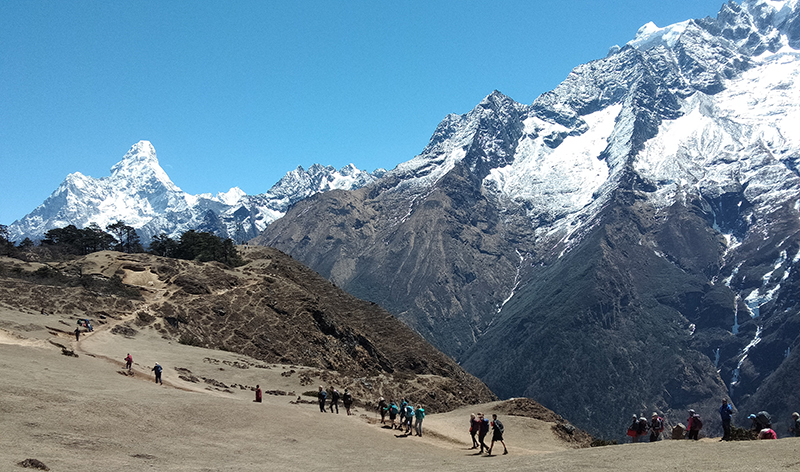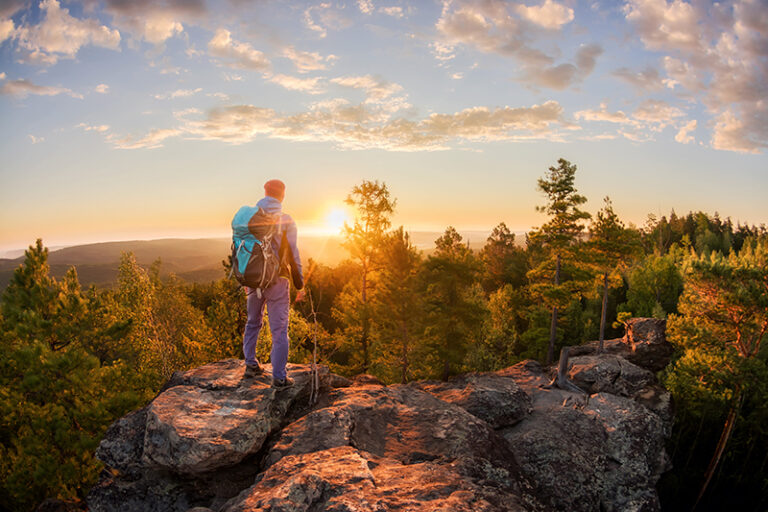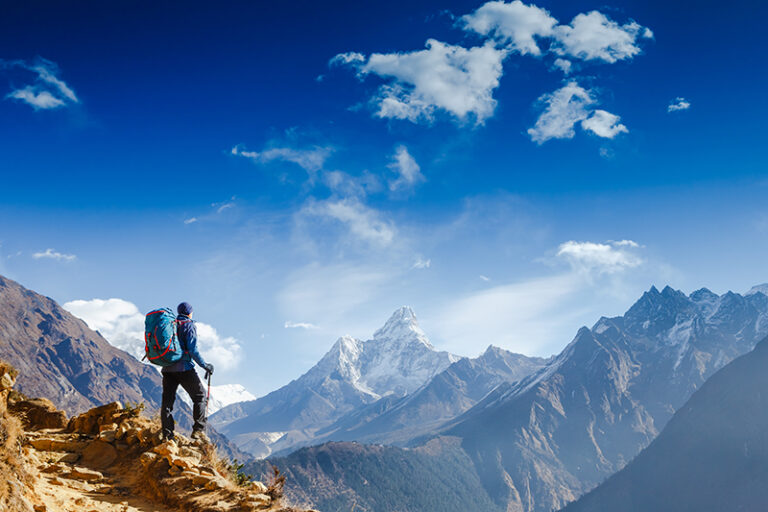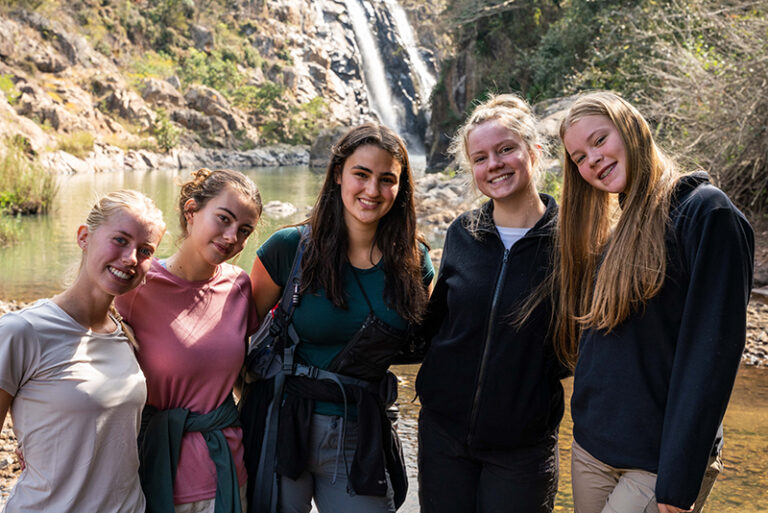Leadership comes in many different forms. But how can this crucial skill be developed on an overseas trip – and where does it come from in the first place? On a World Challenge expedition, the trip leader is, of course, responsible for overseeing the trip, ensuring things run smoothly and that students remain safe and well throughout. But a whole host of young adults are waiting in the wings, ready to emerge as the next generation of leaders. Enter, the students.
From heading up their trekking group to thinking up games to play with local communities or managing the trip budget, students have ample opportunity to master the art of leading during an expedition. Young people can learn by example, so the trip leader or teacher must showcase their professionalism, experience and skill so students follow suit.
Here’s our guide to developing leadership abroad – from tips for a teacher to facilitate this development to the advantages for young people.
Direct or Indirect Supervision?
Clearly, a trip leader needs to supervise students on overseas trips – but this supervision could be direct or indirect. Direct supervision is more hands-on and involves “leading from the front”, ideal for those working with younger students. A teacher could also consider pairing up a younger student with an older one. With indirect supervision – which should be planned for – a member of the leadership team is in the vicinity, they can’t step in immediately, but they can be located if required. This extra freedom allows students the space to develop their leadership and to prove their responsibility and maturity.
Another way trip leaders and teachers can facilitate development is by encouraging students to take ownership of their experience. This can begin at home, for instance earning their trip fee, to pushing their limits and stepping out of their comfort zone when they are overseas. Once on an expedition, effective role allocation is crucial – from being responsible for the budget to taking charge of itinerary research.
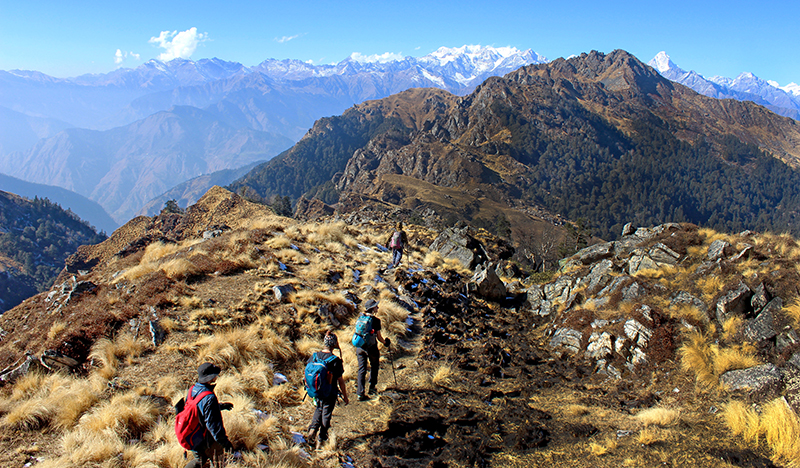
Review Sessions – Get Creative
Leaders should run regular review sessions to draw out valuable learning points, such as the successes of the day, areas for improvement and teamwork. It’s down to individual leaders to determine the best ways of reviewing – perhaps it’s a written task or a quick-fire Q&A session. Other creative ideas might include a “thumb-o-meter” to show a degree of agreement or readiness for tasks, or rolling a dice where an odd number invites someone to note something for improvement and an even number for something that went well.
Laura Morle, one of World Challenge’s leader uses “word of the day” in reviews. “The student team leader for the day chooses a word that they think is relevant to the itinerary and experiences they might have on that day, like ‘patience’, ‘awareness’ or ‘strength’” she said. “It helps them to really think about how they are feeling that day and then draws out good discussions in the evening”. Another leader, Pete Clark, asks students to find a stone and come up with why that stone is a representation of their day. “It could be rough or have a stripe of quartz going through it to symbolise a special point in the day,” he said.
These review sessions not only help students learn leadership skills themselves, but they can also become a highlight of the trip. When asked about their favourite aspect of their expedition to Northern Tanzania, Ariba responded: “Reviewing what we’d done in the day while sitting around the campfire, and going to the village to learn more about how children in Tanzania live.”

Confidence, Friendship and Mental Wellbeing
When asked for feedback on their overseas trips, numerous students reported a surge in confidence and leadership skills. “I have gained a lot of confidence in talking to people I am not familiar with, including when there is a language barrier,” Eleanor said. “My favourite part of the trip was talking to the locals in Vietnam and learning a new culture and way of life.”
Fausta, a student who travelled to Southern Tanzania, gained “the confidence to travel more in the future”. Meanwhile, another student, Beatrice, saw a positive impact on her mental health during her trip to Ecuador. “I gained friendship from my teammates as well as confidence,” she said. “I overcame my anxiety and learned that I am more capable than I ever thought.”
Reflecting on what she had gained from the experience that would influence her future, Charlotte summed it up: “I learned key skills to allow me to travel abroad confidently and independently. I learned how to work well in a team and take on different roles such as leading. I learned to look after myself and my mental wellbeing when I was without family.”
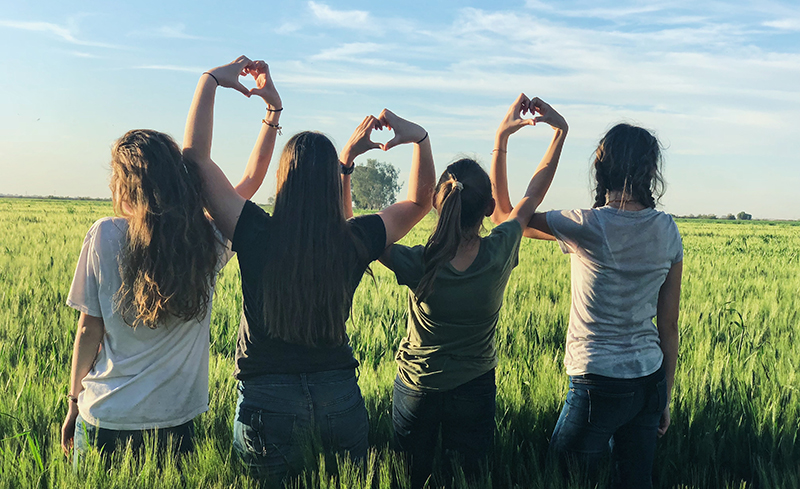
Pushing the Limits
Stepping outside your comfort zone on an expedition lays the foundation for personal development. With the physical and mental challenge of a trek and countless cultural barriers, students walk away from these experiences transformed on various levels. Add to that mixing with different friendship groups and cultures and being away from home and you’re set up for personal growth and potential leadership.
After an expedition, one of our travelling teachers reported that her students were completely transformed. “Many students arrive quiet, and not confident to contribute to the group, and by the end, they are leading the team,” she said. “These trips have an impact not just on students’ careers, but on their lives in general.”
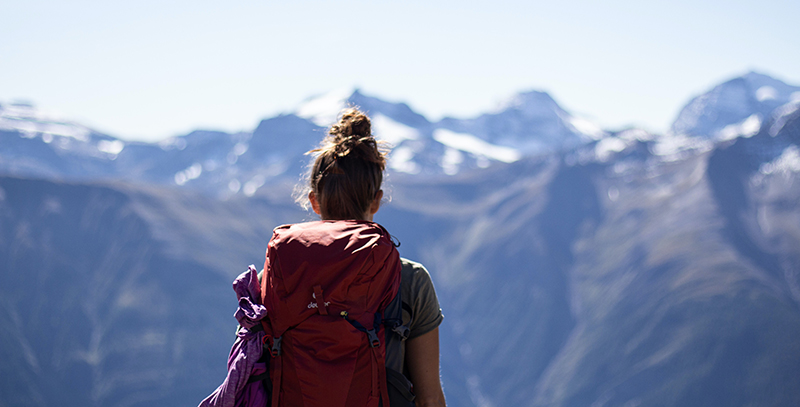
Written by Ellie Ross
